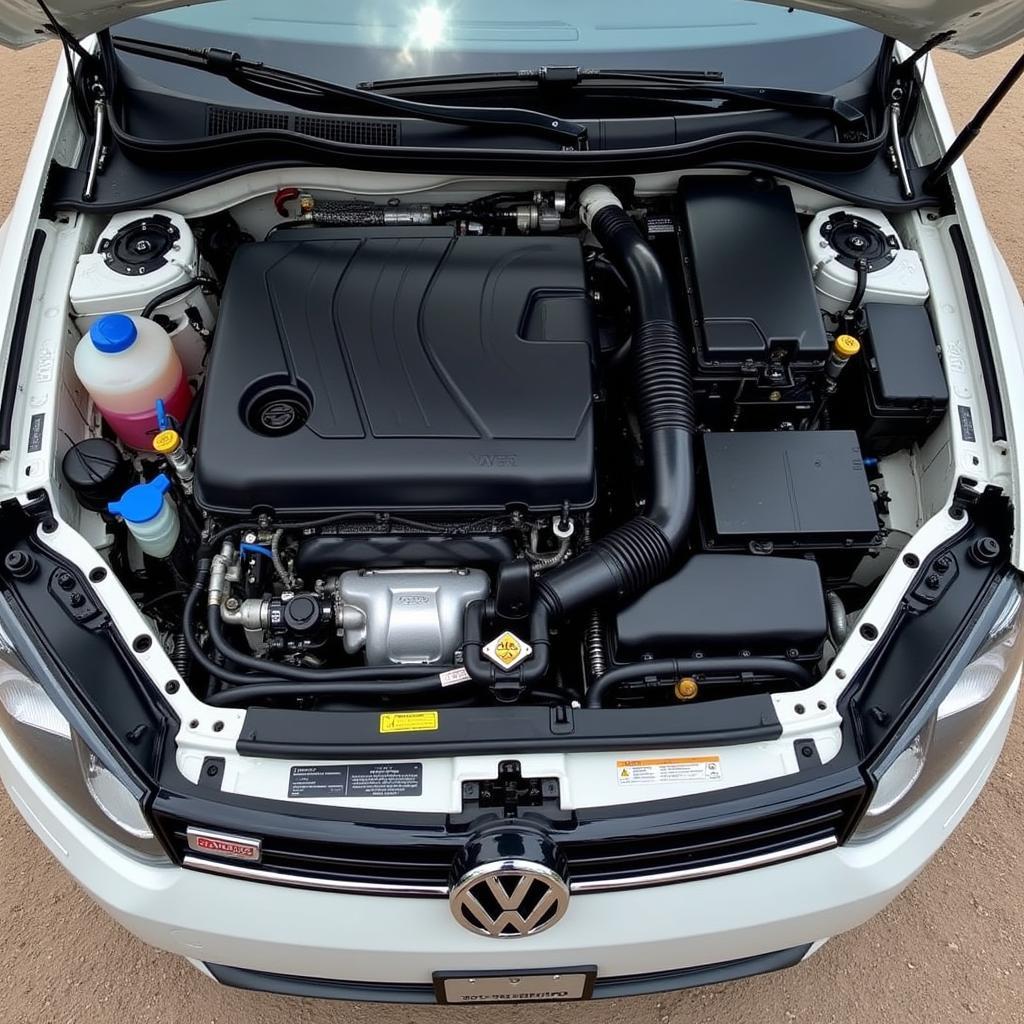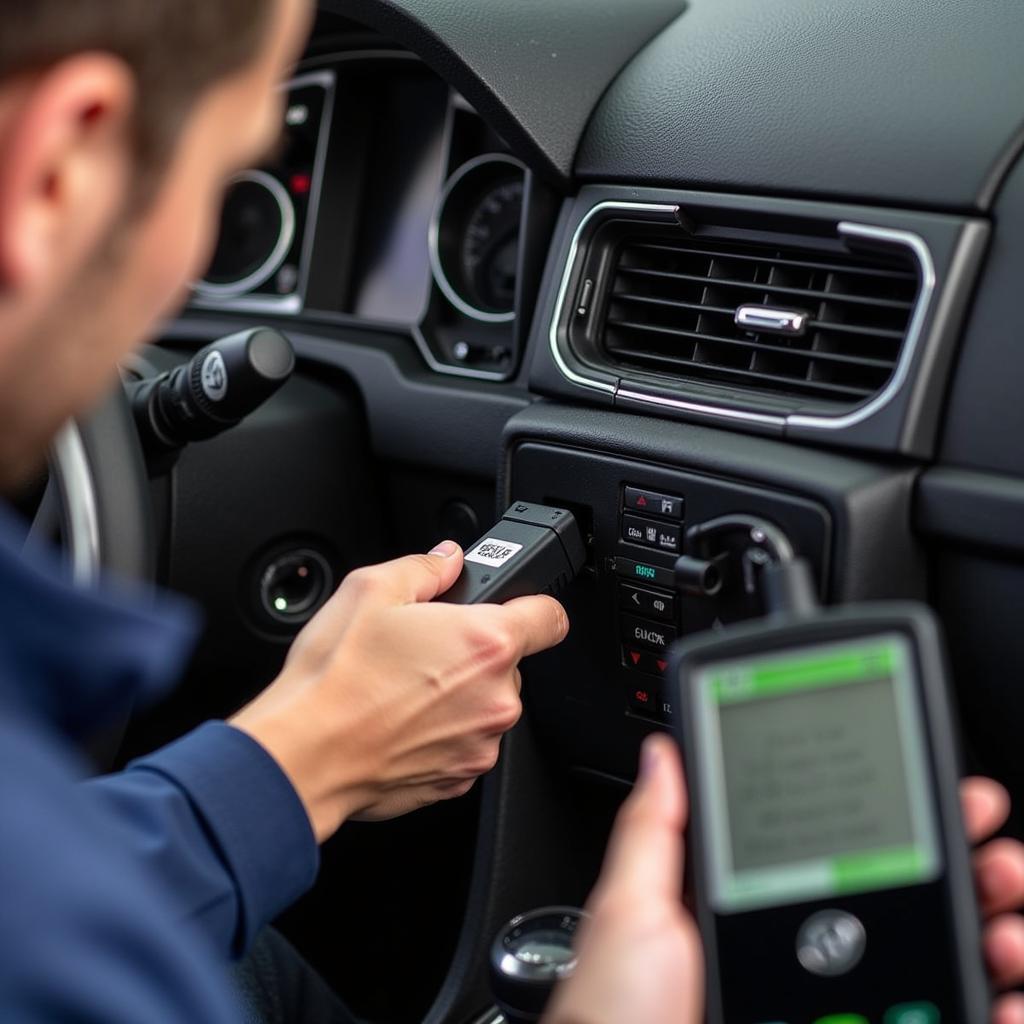Your cart is currently empty!

Understanding VW Golf PD Engine Codes: A Comprehensive Guide
Owning a VW Golf with a PD (Pumpe Düse, or Unit Injector) engine can be a joy, offering a balance of performance and fuel efficiency. However, when engine codes crop up, it can be a source of frustration. This guide aims to demystify those “vw golf pd engine codes”, providing you with the knowledge to diagnose and potentially address the issue.
Common VW Golf PD Engine Codes and Their Meanings
Before diving into solutions, it’s crucial to understand what your car is trying to tell you. Here’s a breakdown of some common engine codes for VW Golf PD engines:
1. P0299 – Turbocharger/Supercharger A Underboost Condition: This code suggests an issue with your turbocharger, a common culprit in PD engines. It could indicate a leak in the boost system, a faulty turbocharger, or a problem with the N75 boost control solenoid.
2. P0101 – Mass Air Flow (MAF) Sensor A Circuit Range/Performance Problem: The MAF sensor measures the amount of air entering the engine, crucial for proper fuel-air mixture. This code indicates a problem with the sensor itself, its wiring, or the air intake system.
3. P0401 – Exhaust Gas Recirculation (EGR) Flow Insufficient Detected: The EGR system helps reduce emissions, but it can be prone to clogging. This code signals that the EGR valve might be stuck, the EGR cooler could be blocked, or there might be a problem with the EGR solenoid.
4. P2263 – Turbocharger/Supercharger Boost System Performance: This is a general boost-related code and often accompanies P0299. It confirms a discrepancy between the actual boost pressure and the expected boost pressure.
5. P0128 – Coolant Thermostat (Coolant Temperature Below Thermostat Regulating Temperature): This code suggests your engine isn’t reaching optimal operating temperature, often due to a faulty thermostat.
 VW Golf Engine Bay
VW Golf Engine Bay
Diagnosing the Issue
Now that you have a basic understanding of common engine codes, how do you pinpoint the exact problem?
1. Use an OBD-II Scanner: An OBD-II scanner is your best friend. It retrieves the engine codes stored in your car’s computer, giving you a starting point for diagnosis.
2. Research the Specific Code: Once you have the code, research its meaning and potential causes. This guide provides a starting point, but a more in-depth search for your specific code is recommended.
3. Inspect the Related Components: Based on the code and your research, visually inspect the related components. Look for loose connections, damaged hoses, or signs of wear and tear.
4. Test Components with a Multimeter: For electrical components like sensors and solenoids, use a multimeter to check for continuity and proper voltage readings.
 OBD-II Scanner in Use
OBD-II Scanner in Use
5. Consider Seeking Professional Help: If you’re uncomfortable with DIY diagnosis or the problem seems complex, don’t hesitate to consult a qualified mechanic specializing in VW vehicles.
Preventative Maintenance for VW Golf PD Engines
Prevention is always better than cure. Here are some preventative measures to minimize the chances of encountering engine codes:
-
Regular Oil Changes: PD engines are sensitive to oil quality. Use high-quality oil that meets VW specifications and change it according to the recommended intervals.
-
Fuel Filter Replacement: Clogged fuel filters can lead to various engine problems. Replace the fuel filter regularly to ensure optimal fuel flow.
-
Air Filter Maintenance: A clean air filter ensures efficient airflow to the engine. Inspect and replace the air filter as needed.
-
Regular Inspections: Periodically inspect your engine bay for any signs of leaks, loose connections, or damaged components.
-
Use Quality Fuel: Using high-quality diesel fuel can help prevent injector issues and other fuel system problems.
Conclusion
While encountering “vw golf pd engine codes” can be daunting, understanding their meaning and following a systematic diagnostic approach can save you time, money, and frustration. Remember, regular maintenance and early detection are key to keeping your VW Golf PD engine running smoothly for miles to come.
If you need assistance with diagnosing and resolving engine codes or require specialized tools for your VW vehicle, don’t hesitate to contact us at VCDSTool. Our team of experts is dedicated to providing top-notch support for all your VW needs. You can reach us at +1 (641) 206-8880 and our email address: vcdstool@gmail.com or visit our office at 6719 W 70th Ave, Arvada, CO 80003, USA.
FAQs
1. Can I drive my VW Golf with an engine light on?
It’s best to avoid driving with an engine light on, especially if the car is exhibiting noticeable performance issues. Driving with a serious problem could lead to further damage.
2. How often should I get my VW Golf PD engine serviced?
Follow the maintenance schedule outlined in your owner’s manual for optimal performance and longevity.
3. Are VW Golf PD engines reliable?
With proper maintenance and care, VW Golf PD engines can be relatively reliable. However, like all engines, they are susceptible to wear and tear over time.
4. Where can I find a reliable mechanic specializing in VW vehicles?
Ask for recommendations from fellow VW owners or consult online forums and reviews for reputable mechanics in your area.
5. Can I use any OBD-II scanner on my VW Golf?
While most generic OBD-II scanners can read basic engine codes, investing in a scanner specifically designed for VW vehicles might provide more detailed information and functionality.
by
Tags:
Leave a Reply